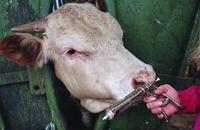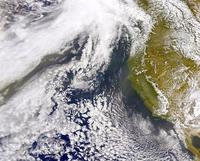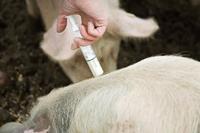-
Chemical, defense companies subject to Chinese Nitro attacks
More and more chemical and defense companies around the world are victims of Nitro attacks. These attacks, launched by government-backed Chinese hackers, install PoisonIvy, a Remote Access Tool (RAT) stealthily placed on computer systems to steal information. The majority of the computers infected belong to firms in the United States, Bangladesh, and the United Kingdom.
-
-
Two Israeli startups with innovative cybersecurity solutions raise combined $25 million
Two Israeli cybersecurity startups, launched by veterans of the IDF technology units, announced that, separately, they had raised a combined $25 million from investors. Adallom’s solution accumulates users’ behavioral data in order to protect databases. It monitors how software applications like the customer relationship management program Salesforce, Google apps, and Microsoft Office 360 are used, and protects data security. Aorato’s solution watches for suspicious usage of employee credentials – for example, multiple guessing attempts. “2013 showed the world the risks of advanced threats in parallel to the implications of insiders’ access to sensitive corporate data,” Aorato’s CEO Idan Plotnik noted, referring to the Edward Snowden’s leaks of secret government information.
-
-
National cyber complex to open next to Ben-Gurion University of the Negev campus
A new national cyber complex called CyberSpark will open at the Advanced Technology Park (ATP) which is located next to Ben Gurion University of the Negev. Fortune 500 companies Lockheed Martin and IBM announced they would invest in CyberSpark R&D facilities, joining other cybersecurity leaders Deutsche Telekom, EMC, RSA, and many startups. The 15-building ATP is the only type of complex of its kind in the world that includes Fortune 500 companies and cyber-incubators, academic researchers, and educational facilities as well as national government and security agencies. The CyberSpark will also include a high school geared toward science and technology.
-
-
Some citizens of low-lying Pacific island nations seeking climate-change refugee status
More and more resident of Pacific island nations and territories are trying to claim refugee status in Australia and New Zealand, arguing that rising sea levels, caused by climate change, are forcing them out of their homes and destroying their livelihood. The New Zealand High Court has rejected the refugee status petition of Loane Teitota and his family, citizens of Kiribati, a low-lying Pacific Island nation near the equator, saying that Teitota’s argument was “novel” and “optimistic.” The court cautioned that if the argument were adopted, then millions of people suffering from the effects of climate change would seek refugee status in New Zealand or any other country.
-
-
The 9 January chemical leak in West Virginia is the latest in a long history of industrial accidents
The chemical spill that affected the water source in nine West Virginia counties in early January is part of a long history of industrial accidents resulting from the concentration of chemical and coal-mining operations in the region. The 9 January spill, which saw coal-cleansing chemical which leaked from Freedom Industries’ storage tank into the Elk River, leaving more than 300,000 residents without access to clean tap water for days, is the latest in a history of pollution which has poisoned groundwater, spewed toxic gas emissions, and caused fires and explosions.
-
-
FDA allows use of antibiotics in livestock despite “high risk” to humans

The Center for Disease Control and Prevention (CDC) has recently confirmed the link between antibiotic use on industrial farms and the rise of antibiotic resistance, saying there is “strong scientific evidence of a link between antibiotic use in food animals and antibiotic resistance in humans,” and warns of “potentially catastrophic consequences” if resistance is not slowed. The Food and Drug Administration (FDA), however, has quietly allowed thirty potentially harmful antibiotics, including eighteen rated as “high risk,” to remain on the market as additives in farm animal feed and water. The FDA first recognized the risks from the use of antibiotics in animal feed in 1977, when it proposed to withdraw approvals for animal feed containing penicillin and most tetracyclines. The agency has not followed through on its own findings – and has fought court orders to do so — and today 70 percent of all medically important antibiotics sold in the United States are sold for use in livestock production — not on humans.
-
-
The world likely to face more frequent, and more severe, blackouts

U.S. household electricity usage increased by 1,300 percent between 1940 and 2001. In the last few decades, air conditioning has been the greatest factor in increased electrical consumption, and one of the greatest sources of systematic strain, with considerably more blackouts occurring in the summer months than during winter. The electricity used to fuel America’s air conditioning is currently of a similar volume to the U.S. entire energy consumption in the 1950s. A new study reveals that today’s occasional blackouts are dress rehearsals for the future, when they will occur with greater frequency and increased severity. Power cuts will become more regular around the globe as electrical supply becomes increasingly vulnerable and demand for technology continues to grow at an unprecedented rate.
-
-
ExxonMobil to pay fines for violations at its Baton Rouge chemical facilities
In a settlement with Louisiana’s Department of Environmental Quality (DEQ), ExxonMobil is ordered to pay $2.329 million to address violations from 2008 to 2013 at its greater Baton Rouge facilities. ExxonMobil was cited for a series of problems at its refinery and resin-finishing and chemical plants in East Baton Rouge Parish, and its tank-farm facility in West Baton Rouge.
-
-
Halting bugs’ crop destruction in India saves up to $309 million
Researchers who first discovered a devastating pest in India and devised a natural way to combat it have now put an economic value on their counterattack: up to $309 million the first year and more than $1 billion over five years. This is the amount of damage the papaya mealybug would have wreaked on farmers and consumers in India without scientists’ intervention. The winning intervention centered on three natural enemies of the mealybug — three parasitic wasps from Mexico— which the U.S. government first employed in Florida after the pest spread there in the late 1990s.
-
-
Aussie police uncovers vast money laundering operation used by terrorists, criminals

Terror groups are known to rely on money laundering operations to finance their activities. A recent operation by an Australian government taskforce has revealed the scope of money laundering operations within the country’s borders. The investigation, which has uncovered forty money laundering operations in Australia, has so far seized $26 million in cash, seized $30 million worth in houses and other assets, and has intercepted drug shipments worth at least $530 million.
-
-
U.S. power plant emissions down

Power plants that use natural gas and a new technology to squeeze more energy from the fuel release far less of the greenhouse gas carbon dioxide than coal-fired power plants do, according to a new analysis. The so-called “combined cycle” natural gas power plants also release significantly less nitrogen oxides and sulfur dioxide, which can worsen air quality.
-
-
Many VSATs operated with no security, leaving them vulnerable to hacking
Very-small-aperture terminals, or VSATs, are used by the oil and gas industry, utilities, financial firms, and news media to transmit information, often sensitive, from remote locations to headquarters. There are more than 2.9 million VSATs in operation around the world, with about two-thirds based in the United States. New security report says that at least 10,500 VSATs are operated with minimal or no security, and are wide open to being hacked.
-
-
China exports air pollution, as well as consumer goods, to the U.S.

Chinese air pollution blowing across the Pacific Ocean is often caused by the manufacturing of goods for export to the United States and Europe, according to findings of a new study. The study is the first to quantify how much of the pollution reaching the American West Coast is from the production in China of cellphones, televisions, and other consumer items imported here and elsewhere.
-
-
California lawmakers propose restricting use of antibiotics in livestock

The growth of antibiotic-resistant bacteria in humans has been attributed to the increasing use of antibiotics in livestock. The Centers for Disease Control and Prevention(CDC) estimates that antibiotic-resistant bacteria infect more than two million Americans a year,killing at least 23,000 of them. California legislators are proposing new laws to restrict the use of antibiotics in livestock.
-
-
Economists propose market-driven solutions to the problem of antibiotic use in agriculture
Fifty-one tons of antibiotics are consumed daily in the United States, of which 80 percent are used in agriculture. To minimize the overuse of antibiotics in livestock, Aidan Hollis of the University of Calgary is proposing the imposition of an antibiotic tax on food producers, thus encouraging them to distinguish between good and bad use of antibiotics, since the fee would force farmers to purchase antibiotics only when needed to treat sick animals and not for non-illness purposes.Timothy Richards of Arizona State University says that more regulations or a tax would run the risk of harming the agriculture industry. He says that farmers and ranchers should clearly label their products as containing or not containing antibiotics, and then market dynamics would operate by “letting people follow labels and buy or not buy meats where antibiotics are used.”
-
More headlines
The long view
Ransomware Attacks: Death Threats, Endangered Patients and Millions of Dollars in Damages
A ransomware attack on Change Healthcare, a company that processes 15 billion health care transactions annually and deals with 1 in 3 patient records in the United States, is continuing to cause massive disruptions nearly three weeks later. The incident, which started on February 21, has been called the “most significant cyberattack on the U.S. health care system” by the American Hospital Association. It is just the latest example of an increasing trend.
Chinese Government Hackers Targeted Critics of China, U.S. Businesses and Politicians
An indictment was unsealed Monday charging seven nationals of the People’s Republic of China (PRC) with conspiracy to commit computer intrusions and conspiracy to commit wire fraud for their involvement in a PRC-based hacking group that spent approximately 14 years targeting U.S. and foreign critics, businesses, and political officials in furtherance of the PRC’s economic espionage and foreign intelligence objectives.
European Arms Imports Nearly Double, U.S. and French Exports Rise, and Russian Exports Fall Sharply
States in Europe almost doubled their imports of major arms (+94 per cent) between 2014–18 and 2019–23. The United States increased its arms exports by 17 per cent between 2014–18 and 2019–23, while Russia’s arms exports halved. Russia was for the first time the third largest arms exporter, falling just behind France.
LNG Exports Have Had No Impact on Domestic Energy Costs: Analysis
U.S. liquified natural gas (LNG) exports have not had any sustained and significant direct impact on U.S. natural gas prices and have, in fact, spurred production and productivity gains, which contribute to downward pressure on domestic prices.
